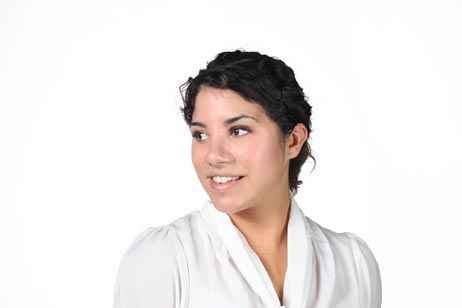By Mohamed El Sayed
CAIRO: Last year when I joined the English-language center at Al-Azhar University in Cairo, I thought it was just that — a center for teaching English. As a student, I didn’t expect it would be my window to the world.
In the Quran, God says: “O mankind! Lo! We have created you from male and female, and have made you nations and tribes that ye may know one another” (Quran 49:13). This verse encourages Muslims to become familiar with people of other faiths, and this is the philosophy espoused by the Muslim students at Al-Azhar University.
Dr. Ahmed al-Tayeb, the Grand Imam of Al-Azhar, has taken many steps to help students interact with people of different cultures and religions. Al-Tayeb initiated the Al-Azhar English Training Center (AAETC), a joint project between the British Council in Egypt and the university, to teach English to its top theology students.
At meetings with our British teachers at the center, we have come to discuss many topics that I never expected to even touch upon with non-Muslims, or even non-Egyptians.
In these once-a-month meetings, the participants choose a topic, read about it and then discuss it from Muslim and Western perspectives. For example, we recently held a dialogue about the theory of evolution and the idea that the world created itself through a series of mutations. Although some say that Islam, like Christianity, teaches the theory of intelligent design, there were many differing opinions among the group. And throughout our conversation we listened to what others had to say, respectful of beliefs that were different from our own.
In other sessions we select global problems, like abuse of the environment, and suggest practical solutions. Frankly, the topic on environment was far less controversial than the theory of evolution because at least we all agreed that it was being abused.
At one of our meetings we were introduced to Rose Aylette, a teacher at the British Council, who had written a dissertation — a comparative study on early Christian and contemporary Islamic martyrs. In our discussion of her paper, we explained to the non-Muslims present the real meaning of jihad (struggle) and shahid (martyr). This is an important distinction, given that many Westerners have misconceptions about physical jihad in Islam. For example, some think it’s murder, a “holy war” allowed in Islam, when in fact this is not what Islam puts emphasis on. The physical jihad, as understood in Islam, is a legitimate defensive war in which the killing of civilians, women, children, farmers, workers, nuns and monks is prohibited, as is the cutting down of trees or destroying houses.
We Muslims consider suicide bombers who intend to kill civilians to be criminals, not martyrs.
We have also met with other influential figures from Britain and the United States, such as Faisal Abdul Rauf, founder of the Cordoba Initiative, an organization dedicated to building trust between different religious communities and cultures. In these meetings we discussed the many stereotypes we hold about the West. For example, we previously thought that Muslims in Western countries were barred from practicing their religion. However, after engaging in dialogue, we now understand that many Westerners consider Muslims an integral part of their communities, and that they have the right to express their beliefs and to practice their religion freely.
We also created two online networks, one of which is exclusively for students and teachers. We use it to connect with one another, discussing topics of relevance between those in the Muslim world and those in the West.
The second online forum is a general network for students affiliated with the center and people anywhere outside the university (www.Alazharnewgeneration.ning.com). Through this particular network and open discussions on this website, we are trying to build bridges between Muslims in the Arab world and Westerners, sharing with them our beliefs that the real Islam is a religion of peace and tolerance.
Through both the AAETC and these networks, I have made many friends with British, American and Dutch Muslims, as well as with many non-Muslims. It is through these friendships that I am able to clarify any misunderstandings they may have about Islam and Muslims while also rethinking my own stereotypes and misconceptions about the West.
Mohamed El Sayed is a student in the Faculty of Sharia and Law at Al-Azhar University. This article was written for the Common Ground News Service (CGNews).
